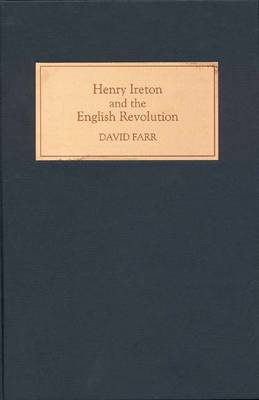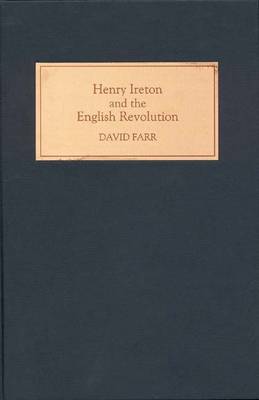
- Afhalen na 1 uur in een winkel met voorraad
- In januari gratis thuislevering in België
- Ruim aanbod met 7 miljoen producten
- Afhalen na 1 uur in een winkel met voorraad
- In januari gratis thuislevering in België
- Ruim aanbod met 7 miljoen producten
Omschrijving
A devout puritan, Henry Ireton was an immediate parliamentarian activist rising to the rank of Commissary-General of the New Model Army. Ireton shared Oliver Cromwell's religious enthusiasm and acted as one of his political mentors. Ireton, more than any other individual, even Cromwell, brought about the execution of Charles I. Indeed it was Ireton's influence, symbolised by his marriage to Bridget Cromwell, that did much to persuade Cromwell to become a regicide. Ireton's importance was through the theoretical and practical framework he provided for the revolution of 1647-9. As the 'penman' of the revolutionary army Ireton was an author of its significant political statements. Ireton was at the heart of the army's Heads of the Proposals, their attempt at settlement with the king in 1647, he was its chief negotiator with the Levellers at the Putney and Whitehall Debates and Ireton was chiefly responsible for the 1648 Remonstrance that justified the army's purge of Parliament and called for execution of justice on Charles I. In 1649 both Ireton and Cromwell embarked on the conquest of Ireland, Ireton remaining there as Lord Deputy until he died on campaign in 1651.
Specificaties
Betrokkenen
- Auteur(s):
- Uitgeverij:
Inhoud
- Aantal bladzijden:
- 288
- Taal:
- Engels
Eigenschappen
- Productcode (EAN):
- 9781843832355
- Verschijningsdatum:
- 19/10/2006
- Uitvoering:
- Hardcover
- Formaat:
- Ongenaaid / garenloos gebonden
- Afmetingen:
- 165 mm x 233 mm
- Gewicht:
- 594 g

Alleen bij Standaard Boekhandel
Beoordelingen
We publiceren alleen reviews die voldoen aan de voorwaarden voor reviews. Bekijk onze voorwaarden voor reviews.









